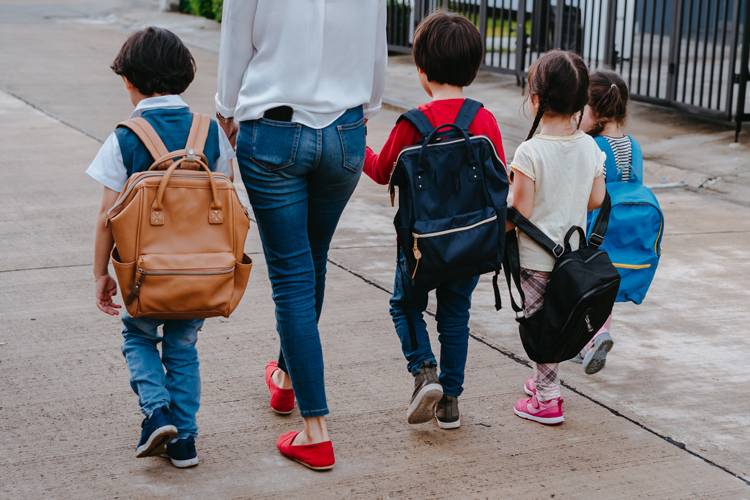How to survive the WhatsApp groups
The parents of secondary school, the rhythm group, the music group, Pablito's birthday party and many more... WhatsApp groups are becoming more and more frequent and, why not, more annoying... We explain how to survive them and not die trying.
child care
Share

While chatting often replaces the huddles at the school gate and can be very effective in communicating quickly, it is often notorious, and can lead to misunderstandings, which is often the case.
The school's WhatsApp groups become the parents' playground where everyone can express their opinion (or not) on subjects such as the book to be bought this term, that there is no music class tomorrow, that I have lost the child's jacket, or things of lesser importance, such as Beyoncé's latest video or the meme of the day.
This type of group, moreover, has as its main characteristic to give an opinion about the teacher, to criticise the one who leaves the group or who never says anything or to increase the number of messages when you communicate that your child is sick. Shame on the person who doesn’t say ‘get well soon’, so, be careful with being the antisocial one of the group, you will be banished and uninformed forever.

Types of dads and mums
- The blunder: the one who asks questions about things that have been said 70 times before because they haven’t read them.
-The one who does not know the dictionary: people who every time they write seem to kill a word, and without any hang ups.
-The bum: who, by not asking his son, bombards the group with questions.
- The show-off: the one who boasts of having a child so clever that he gives advice to others to make them look like him.
- The spy: the one who asks another parent questions about his or her child because their child does not tell them.
- The gossip: the one who tells gossip about a teacher, another mother or her neighbour from the third floor.
- The cool one: the funniest of the group.
- The grandmother-for everything: the one who takes care of the grandchildren and wants to keep up to date with the topics that are spoken about; she stresses that the mother of the children will be criticised for not being the one in the group.
- The sheep: he never speaks but is in the group so that no one criticises him; at most he intervenes with a 'haha' or 'hope he gets better'.
- Emoji-man: uses the emojis non-stop.
-The one with the double identity: in reality he never speaks to you but for the group he is the most animated of the place.

What you need to know
1. Don't take the responsibility away from our children: one of the main topics in parent groups is homework and many of the groups become a kind of parallel agenda where parents ask about the homework they need to do today, ask them to upload the photo of the last card because they have forgotten it in class, etc. It is not recommended that we become our children's secretaries, it is they who should learn to assume their responsibility. If one day they forget their homework or don't remember that they had to take it the next day, it is better for them to face up to it than to do it for them because we run the risk of turning them into lazy children with no resolve.
2. Prevent individual problems from becoming collective problems: any complaints to the teacher, by his or her method, by a mark on which we disagree, etc., are better discussed directly with the teacher than shared with all parents.
3. Respect: Above all, you must always respect the members of the group, the teacher or anyone else you talk about, a misunderstood word can lead to unnecessary squabbling, any serious issue is best discussed directly with the person involved, and the best way to solve it is to take the necessary steps, such as tutorials, e-mails, coffee breaks, etc. The main thing is to solve it in the best possible way.
4. Leave private topics out of it: always comment on topics related to the school or the activity to which the group refers, jokes, videos, topics that have nothing to do with our children, it is better to leave them out of it.

Don't forget...
- Do not add anyone to the group without their consent.
- Avoid judging anyone who leaves the group. Everyone has their reasons.
- If there is something to ask in the groupand it is personal, do it humbly and ask for a private answer so as not to disturb the others.
- Please and thank you: it seems silly, but these words help a lot in digital communication.
- Beware of silences: this does not mean that you are being belittled, your message may not have been read, you may not be able to respond at that time, etc. The need for immediate response can play tricks on you.
- Do not abuse emoticons if they do not add value to the conversation.
- Photos: We do not recommend posting photos on this channel, however, if you post photos, they should always be of your children, never of the children of other group members or children who have nothing to do with them, and you may not use photos of minors without parental consent.






